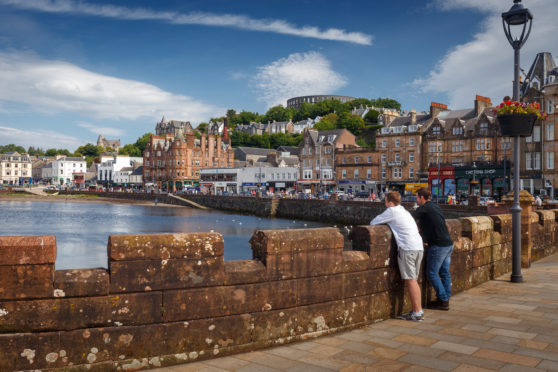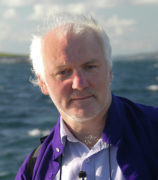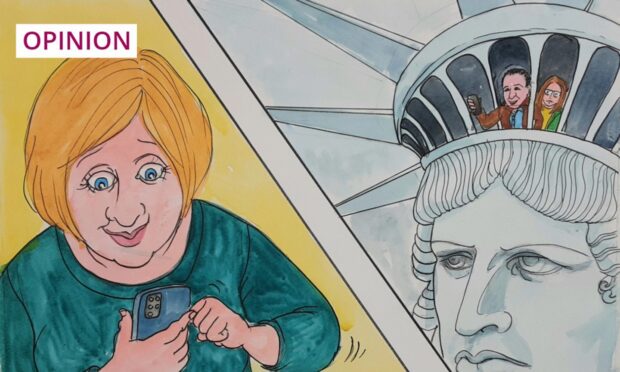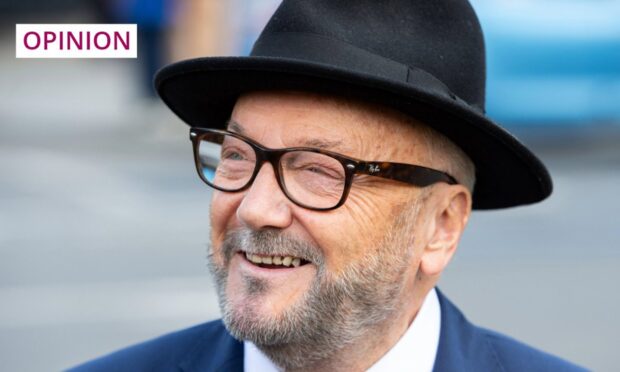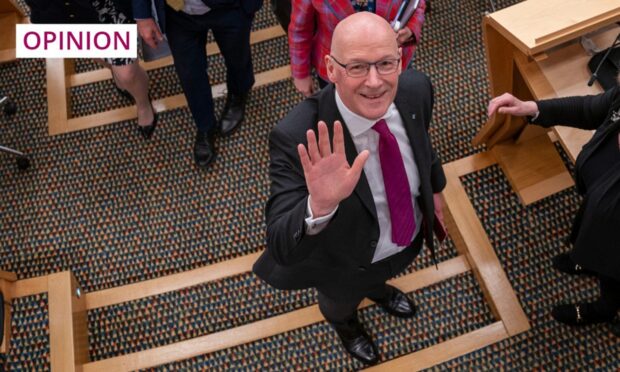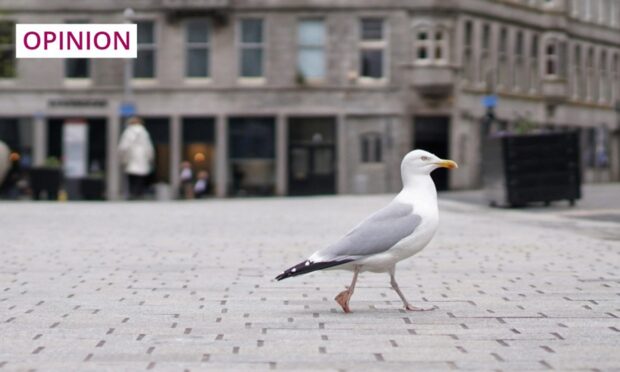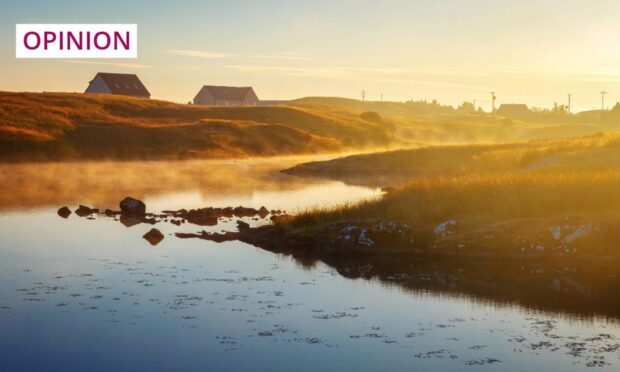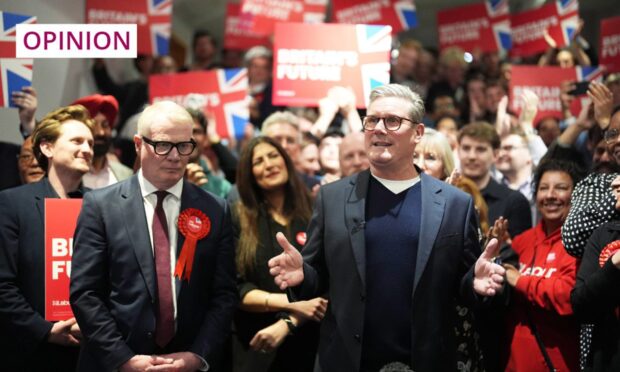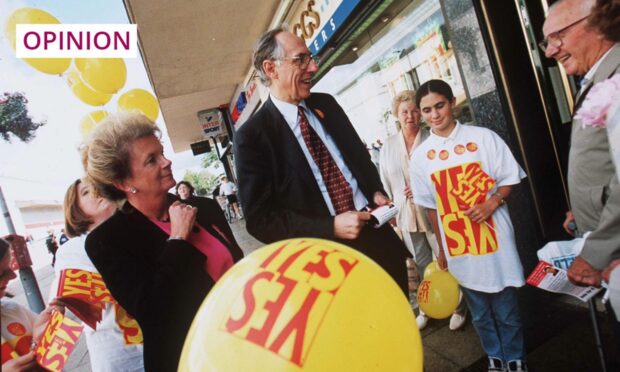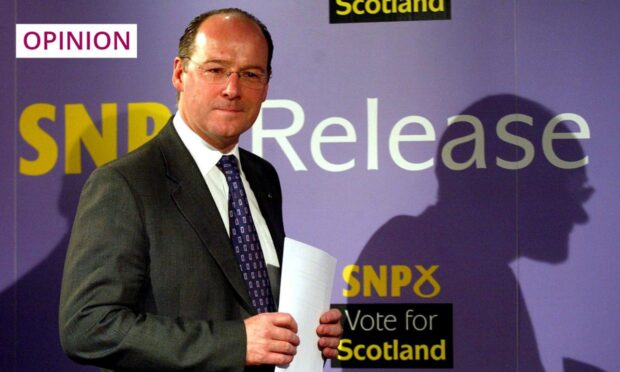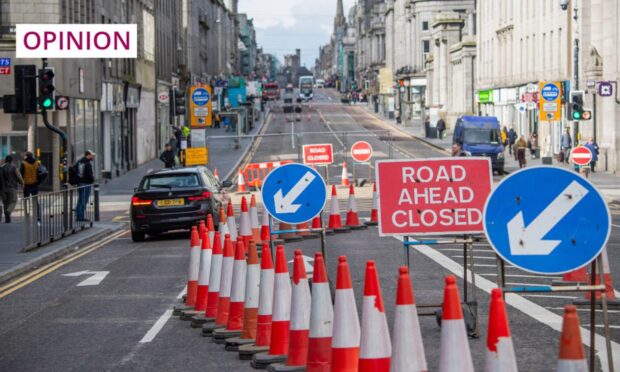I’ve never really been that fond of travelling. Maybe because the village I was born and brought up in – South Boisdale at the south end of South Uist – was a world in itself, and I had no need to venture much beyond it.
Why would I? We had a bit of grass where we could play football, and a river running by the house where we could sail our little home-made wooden boats, and a school up the hill where I learned all about Robin Hood and Treasure Island, and a church next door where we sang in Latin, and two or three travelling vans which delivered comics and sweets (Lucky Potatoes!), and 14 or so households in the village, including Iain Sheonaidh, who was one of the last bearers of the Fingalian chant. What else would anyone need?
Then when I was 12 we moved to the mainland, to the Las Vegas that was Oban. Michty me! It had a cinema. And a fish and chip shop. And a train station. And Woolworths. I watched Chitty Chitty Bang Bang in the picture house there, and immediately wrote a letter to Dick Van Dyke and he sent me back a signed picture and I delight every day that the great man is still alive and dancing around, aged 94 or so.
Since then I’ve been to a few other places. Crianlarich. Ellon. Inverness. Thurso. Wick, even. As a student in the 1970s I went over to Madrid for a while to visit my sister who was living there. These were still the days of Franco, and apart from the oven-like heat when I came off the plane at Barajas, the gun-bearing policemen were the first cultural surprise. I got a train ticket to travel south to Morocco, and loved the journey in the sunset down through Granada to the port of Algeciras. From there I caught the ferry across to Tangier and then the train down to the astonishing city of Casablanca, where I watched Elvis Presley dubbed into French in an open-air cinema with the smell of roasted chestnuts from the fire-trays of the vendors moving through the aisles.
Since then I’ve visited France, Germany and – thanks to the BBC, who took me on a pan-European journey some years ago – down to Sarajevo and up through Poland and on to Denmark. One of my daughters studied and now teaches in Boston, and I’ve loved my time there and in New York where I acted in a stage play a few years ago. After the show, I was talking to this lovely gentleman who said he enjoyed our performance. I thanked him and we chatted for a while, and it was only afterwards that one of my co-actors told me that I’d been speaking with Bill Murray. That’s what comes from hardly ever watching films and from not having had a telly for years and years.
I like New England and the clapperboard houses are as you expect any dream to be: True. I suppose my favourite place to visit is Paris, because it still has style and charm, despite globalisation. Just as South Uist is still retrospectively blessed by the fact that Margaret Fay Shaw lived and worked there almost 100 years ago, so Paris continues to be blessed by the literary ghosts of Hemingway and Fitzgerald and Joyce and the continuing artistic presence (through their works) of Brancusi and Messiaen and Picasso. Art lasts.
Over the past decade or two (pre-Covid) over-tourism has destroyed much of the charm, as well as the ecological health, of the world. There are few, if any, unexplored places left, and who really wants to travel thousands of miles through overcrowded airports and on packed planes to crammed places elsewhere?
If any good at all emerges from Covid-19, then I hope that more ethical and environmentally-sensitive tourism is one of them. That applies to Skye as much as to Sri Lanka or any other global outpost beginning with S, or any other letter. The danger in seeking new or familiar things is that we destroy that new or familiar thing in finding it. Many come to the west coast of the Highlands where I live seeking solitude, and in searching for it destroy the very solitude they seek.
I suppose it’s a bit like the old story of Midas. The past few years has seen an enormous increase in tourism to the Highlands, and of course while everyone acknowledges that we are all visitors at one time or another, and that it is a hugely important industry, it can also damage both the environment and local culture. The exponential growth of Airbnb has caused terrible problems with local people unable either to rent or buy a place in their own land.
Midas wished that everything he touched would turn into gold. He was granted his wish, which proved to be a curse. For if you put your hands into clear running water for a drink and it turns into solid gold, it won’t quench your thirst. Be careful what you wish for, eh?
Angus Peter Campbell is an award-winning writer and actor from Uist
